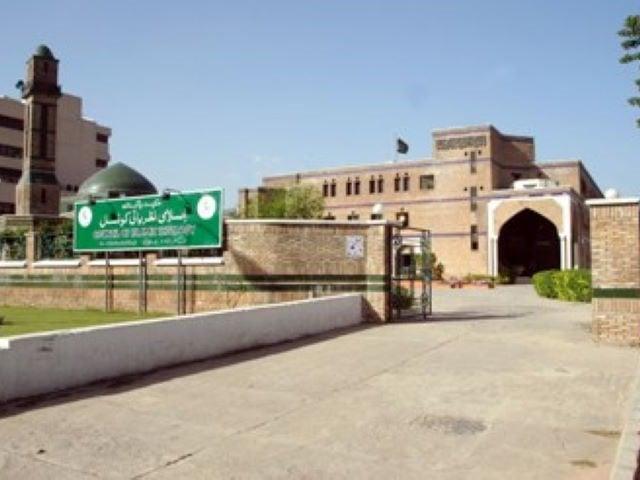Islamabad:
The Council of Islamic Ideology (CII) said on Wednesday that they confirmed its earlier position that Khyber-Pakhtunkhwa (KP)-trans-gender-law proposal contains the same unislamic elements as the 2018 transcend action, which had been declared inconsistent with Islamic principles from the Council and the Federal Shariat Court.
The case was taken up during a meeting where the CII members considered a total of 19 agenda. The session was led by CII chairman dr. Muhammad Raghib Hussain Naeemi.
In addition, the Council expressed concern about the Bill’s admission of Guru-Chela (Mentor-Disciple) concept, considering it as uslamic.
The council gave that giving the first wife the right to cancel her marriage if her husband remarries without her permission is non-Islamic. Any judicial decision that allows such cancellation contradicts Islamic teaching.
It was decided that marital testing for thalassemia or other infectious diseases can be included in Nikahnama (marriage contract) as an optional provision. However, the decision to marry will only remain at the discretion of both parties under Islamic law.
The council gave that organ transplantation, especially by the kidneys and the liver, is allowed as long as the donor’s life is not threatened.
The Council gave that newly staff employees may be required to participate in the contributing pension system, but existing employees cannot be forced to participate in it. In addition, it emphasized that pension funds must be completely free of interest -based financial systems.
The Council emphasized that Zakat funds should be distributed to deserved individuals without unnecessary delays. However, if administrative procedures cause delays, however, these funds can be placed in profit -generating Islamic bank accounts. In case of financial losses, the government will be responsible for compensating them.
At the meeting, four experts from the Sindh Institute of Child and Neonatology were invited to present a briefing on the creation of a human dandelion. They provided detailed answers to 33 queries raised by the council members. Additional questions from the members were also addressed. The Council decided to conduct an in -depth investigation of the case and will present its final decision at the next meeting.
It was decided that Islamic expressions such as Salah (Prayer), Ayah (Vers) and Masjid (Mosque) should be preserved in their original Arabic form instead of being translated into English.
The Council emphasized that scholars and intellectuals should raise awareness of their respective levels regarding the question of electricity theft.



